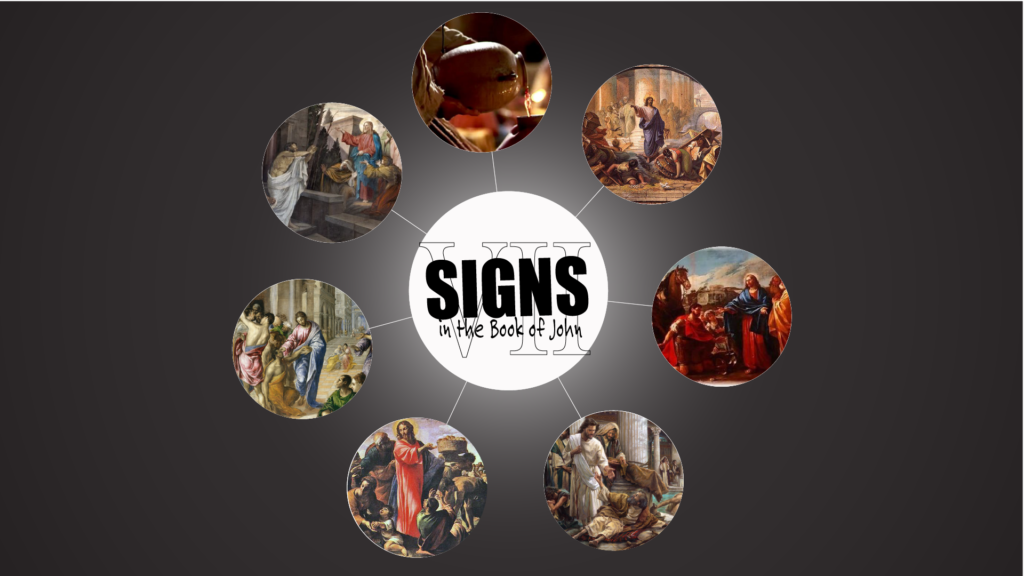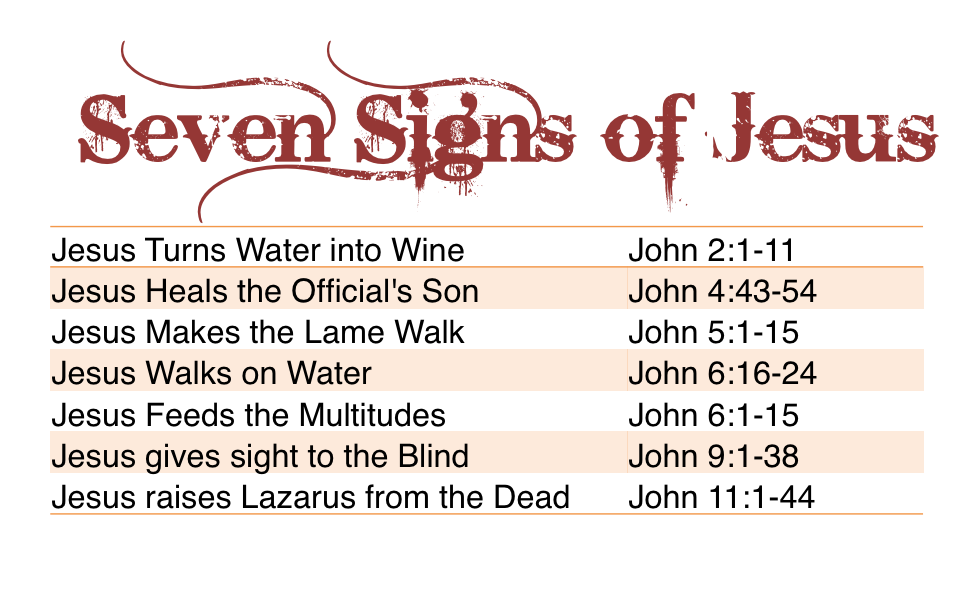30 There are also many other signs (attesting miracles) that Jesus performed in the presence of the disciples, which are not written in this book; 31 but these have been written so that you may believe [with a deep, abiding trust] that Jesus is the Christ (the Messiah, the Anointed), the Son of God; and that by believing [and trusting in and relying on Him] you may have life in His name.
John 20:30-31 (AMP)
Other signs
John just recorded undeniable first-person testimony authenticating Jesus’ resurrection and the claim of His deity. To add punch, he makes a point of noting that there were indeed many more signs than the ones He recorded. What were they? “Most interpreters believe that John meant the same kind of signs as the seven miracles that he featured, the significance of which Jesus usually explained in the context (chs. 2—12).” (planobibelchapel.org) We can see some of them in the other gospels.
The Seven Signs from John’s Gospel
| The Sign | Significance | Belief | Unbelief | Reference |
|---|---|---|---|---|
| Changing water to wine | Jesus’ power over quality | The disciples | 2:1-11 | |
| Healing the official’s son | Jesus’ power over space | The official and his household | 4:46-54 | |
| Healing the paralytic | Jesus’ power over time | The paralytic? | The Jews | 5:1-9 |
| Feeding the 5,000 | Jesus’ power over quantity | Some people in the crowd | 6:1-15 | |
| Walking on the water | Jesus’ power over nature | The disciples | 6:16-21 | |
| Healing a man born blind | Jesus’ power over misfortune | The blind man | The Pharisees | 9:1-12 |
| Raising Lazarus | Jesus’ power over death | Martha, Mary, and many Jews | The Jewish rulers | 11:1-16 |
Reason for writing
Why did John document his experience with Christ and His life? His desire was that 1) people not familiar with Jesus could understand who He is and believe; 2) believers can grow in their faith. “John’s purpose was not academic; it was not simply that people might believe intellectually that Jesus is the divine Messiah. It was rather that they might believe those foundational truths, so that they might receive salvation and experience the life of God fully (cf. 10:10).” (planobiblechapel.org)
RЯeflection
- John is a good book to give to non-believers to read through. Consider offering this to a friend, co-worker, or family member. Better yet, offer to read and study it with them.
- What have you learned from John’s gospel? Share in the comments. For me, I take a liking to the high drama John expresses (like the resurrection of Lazarus) which helps make it more real.


